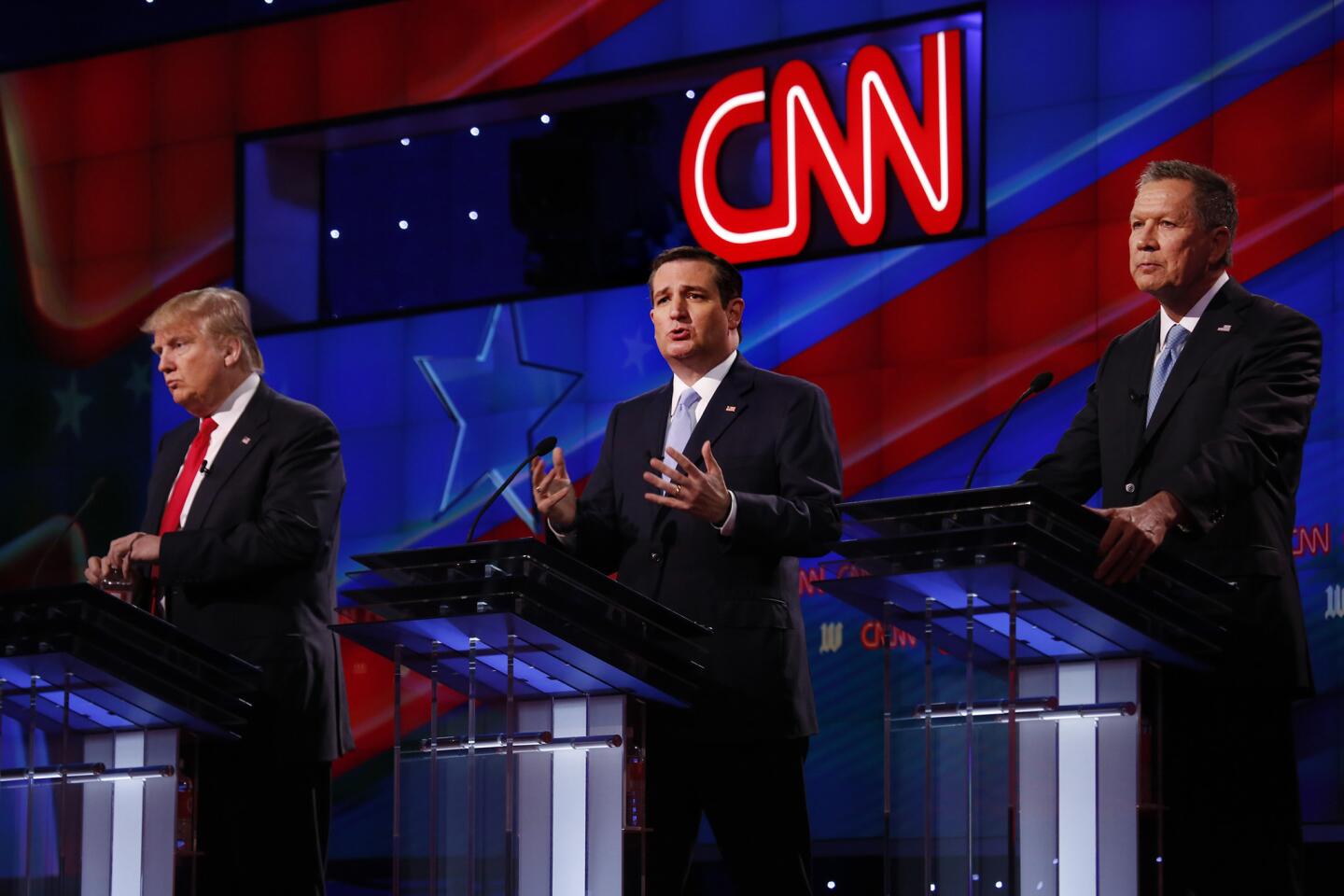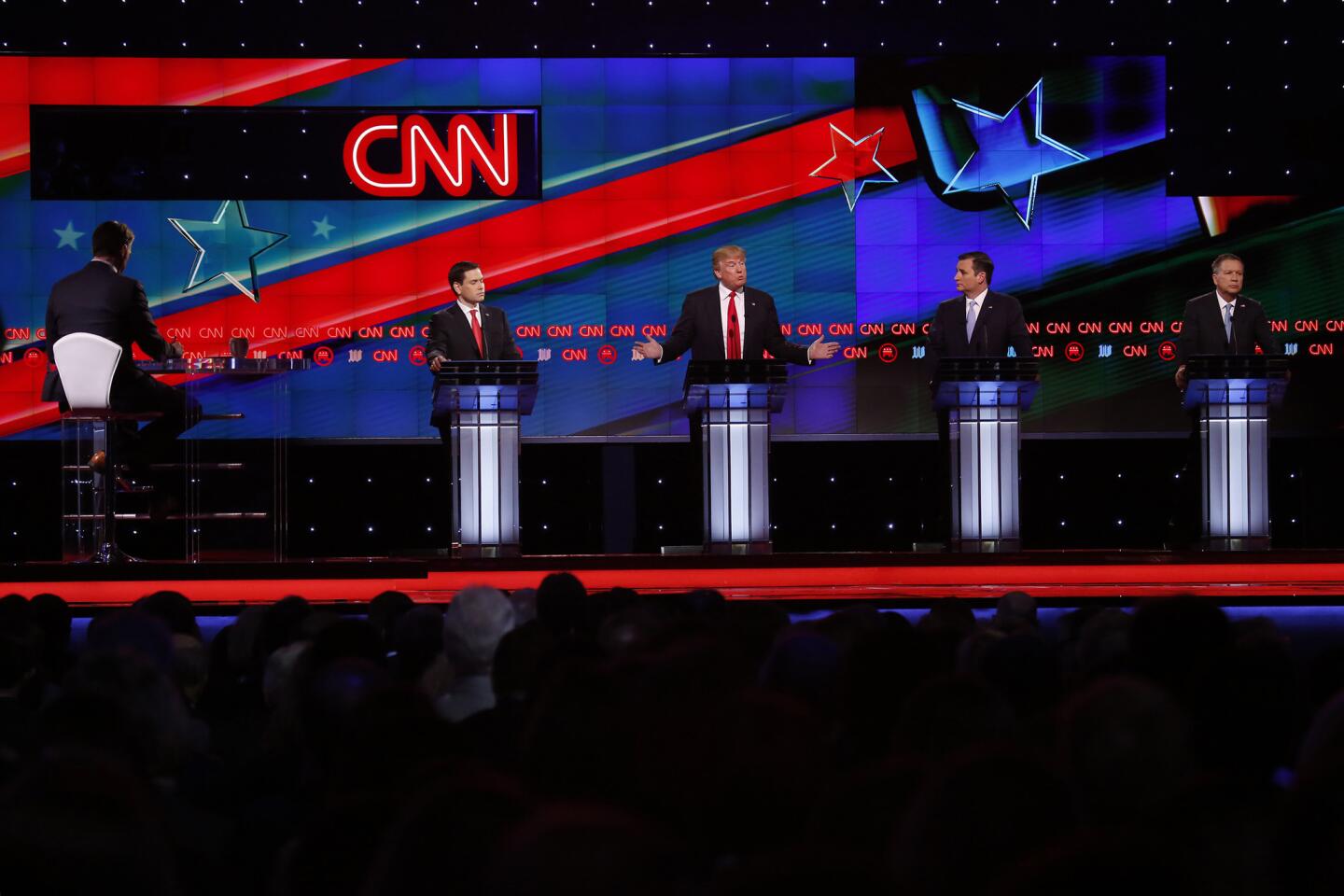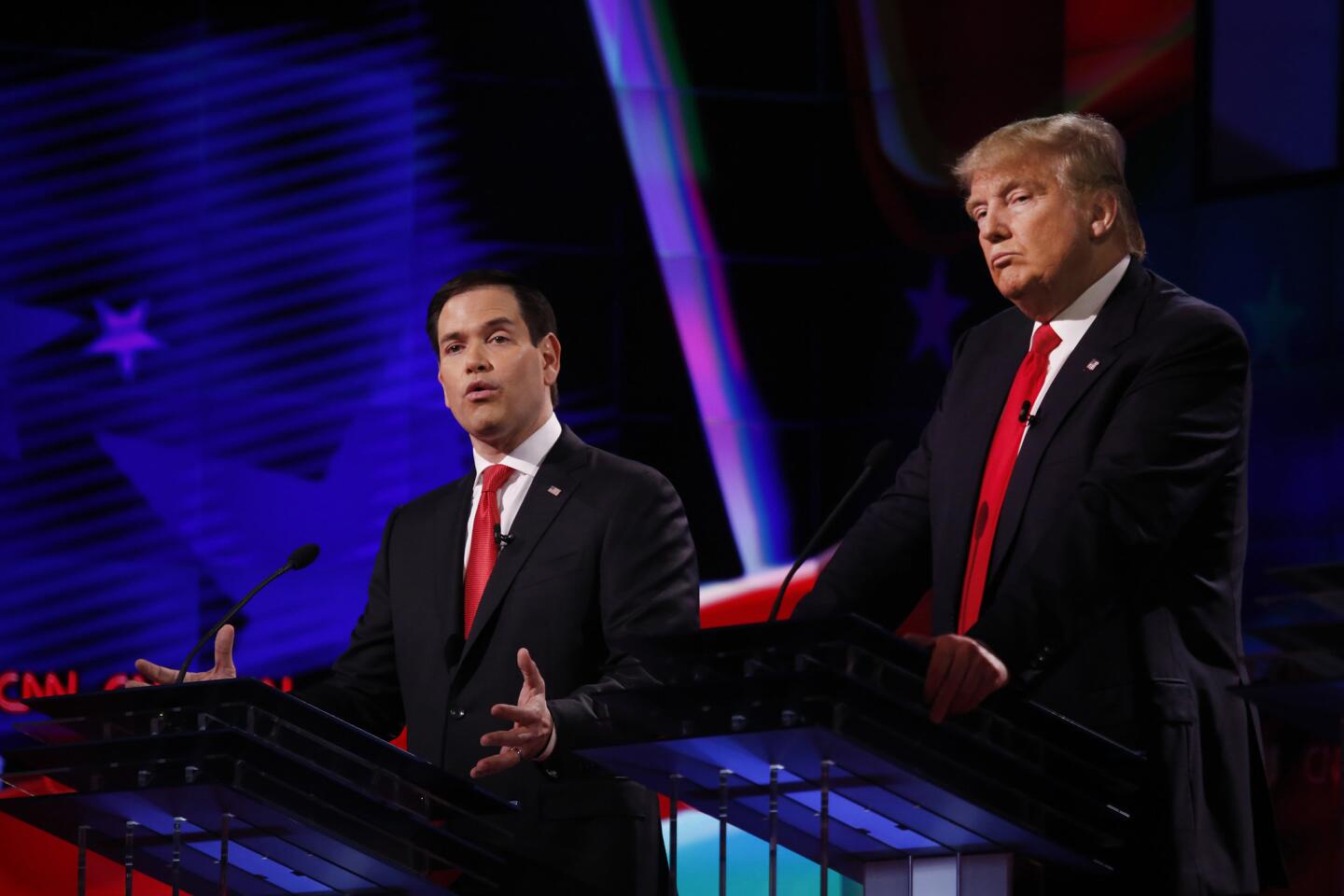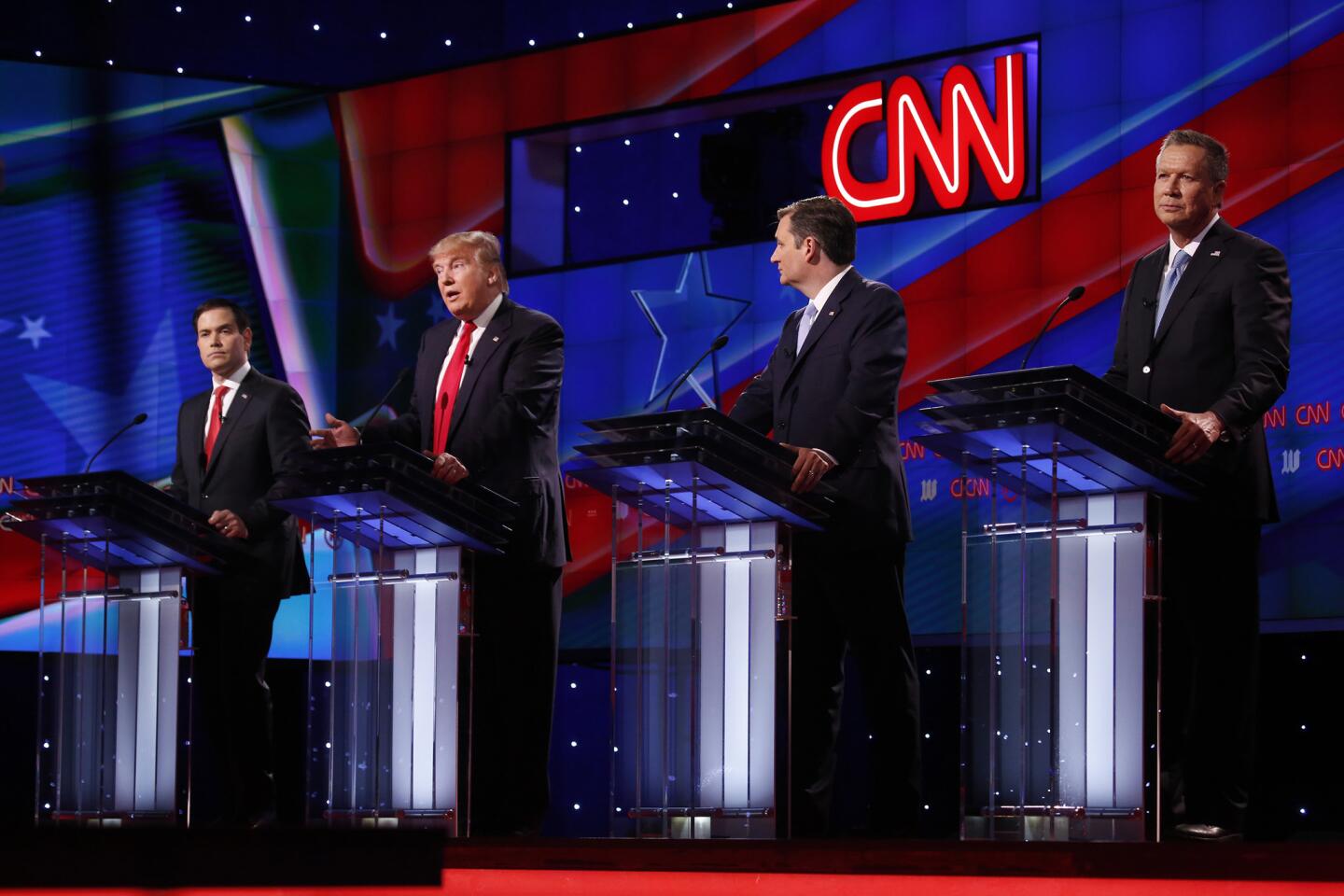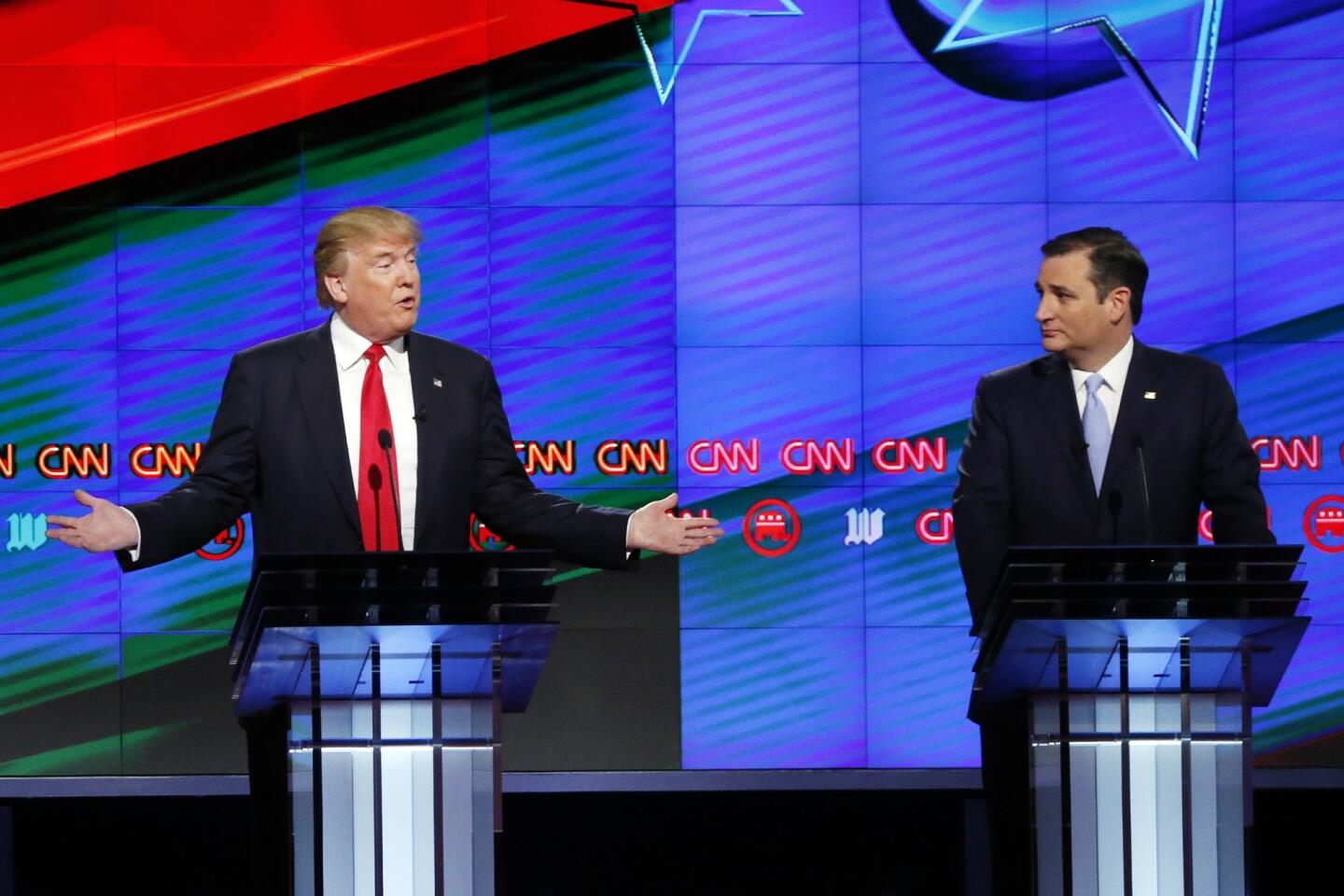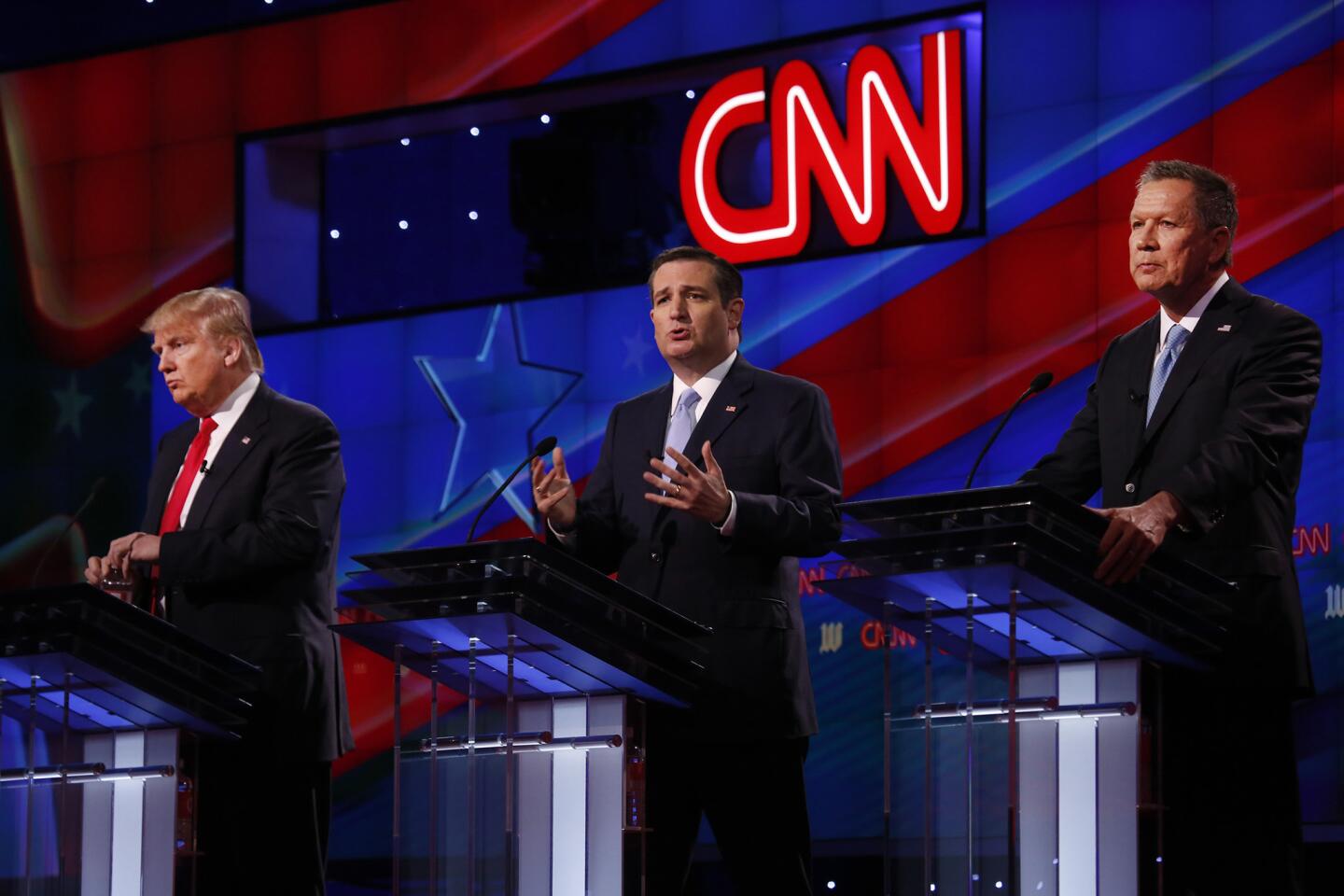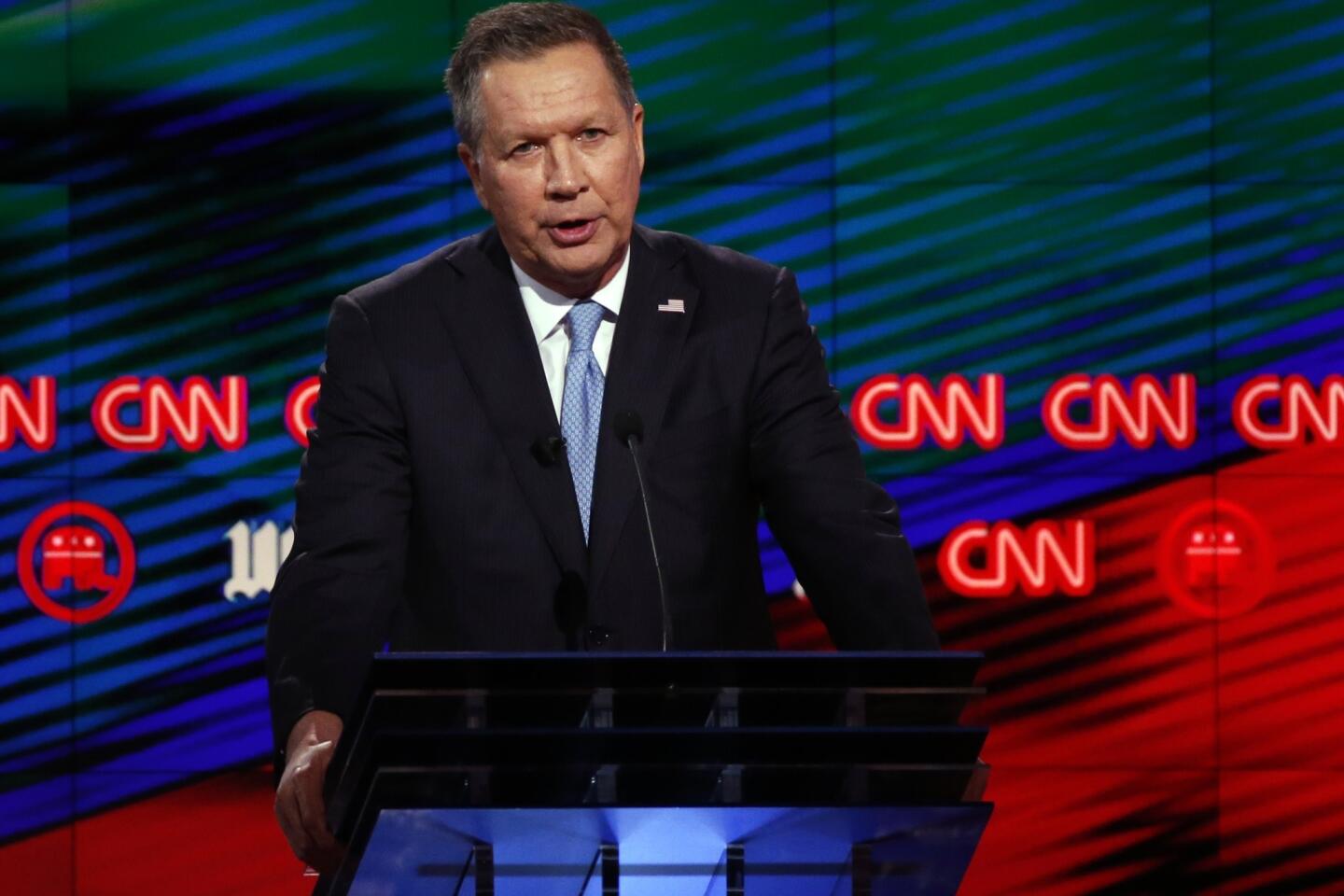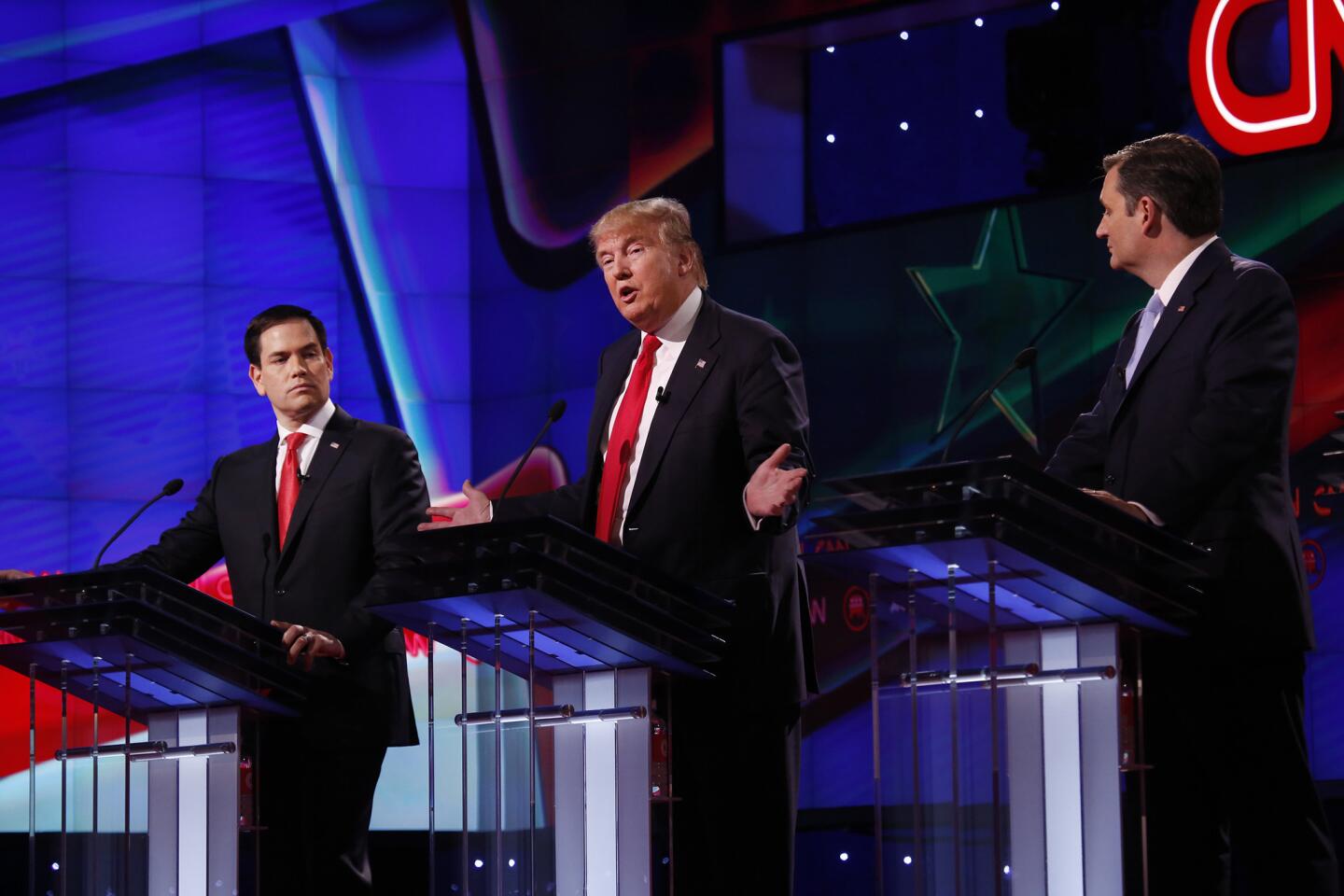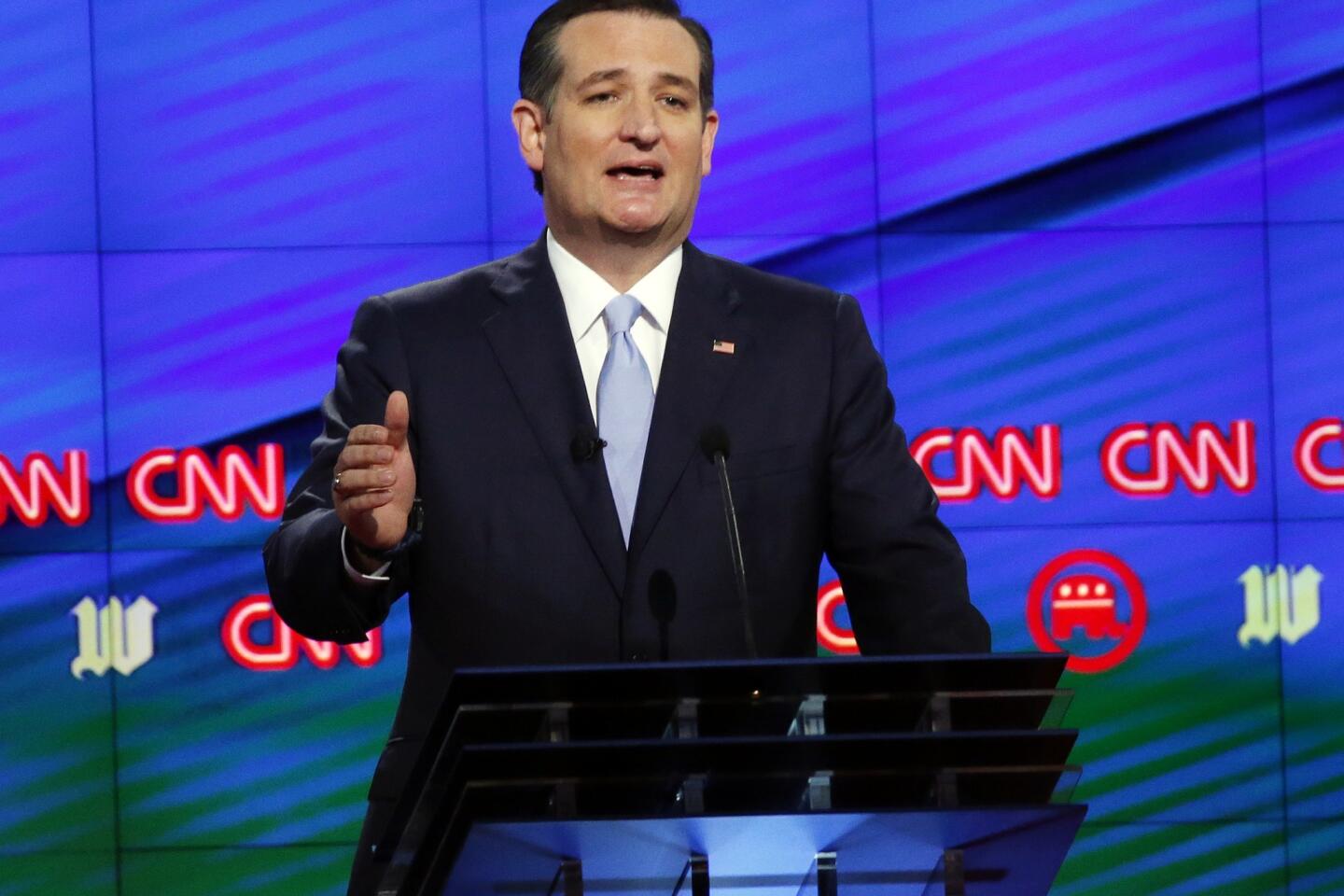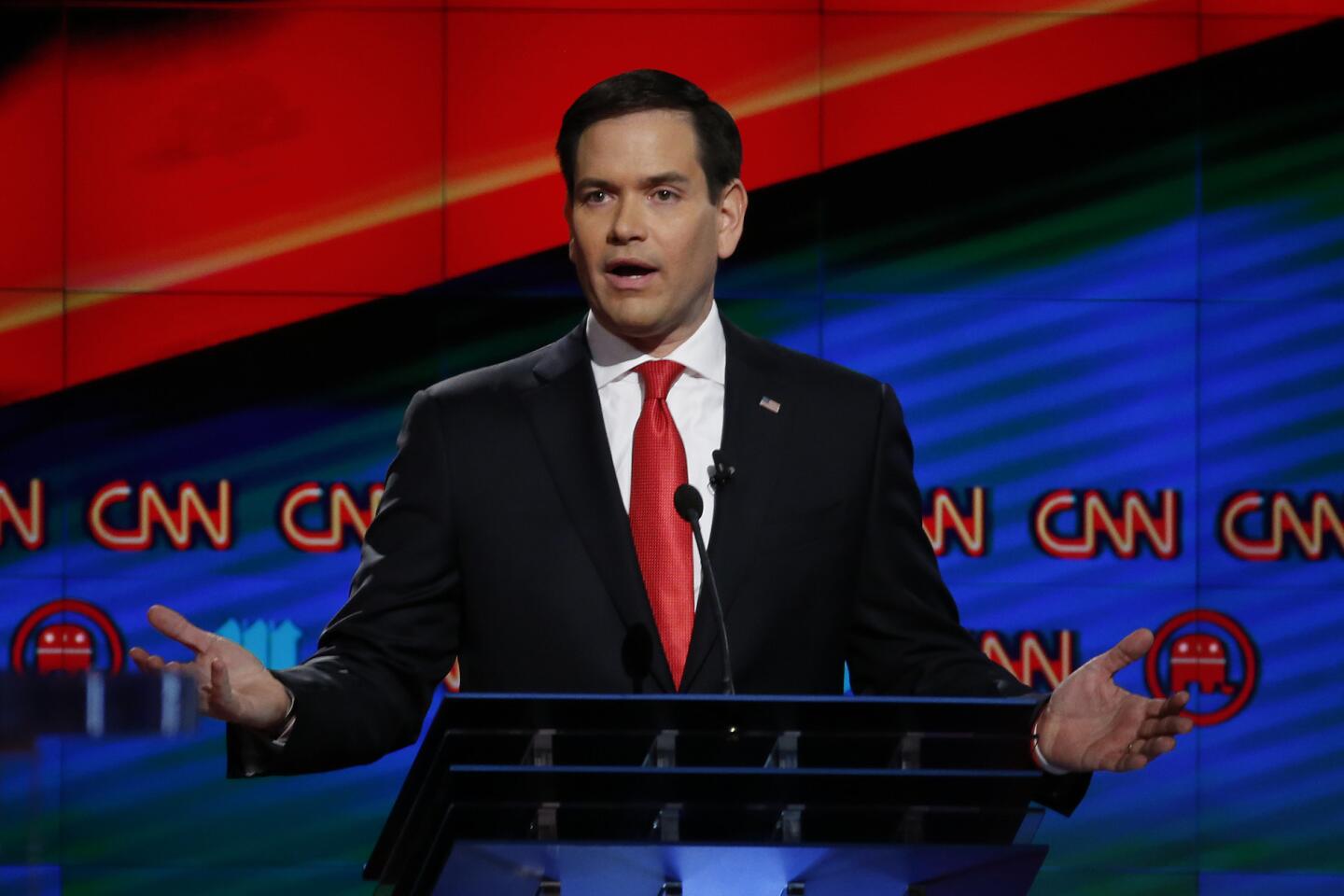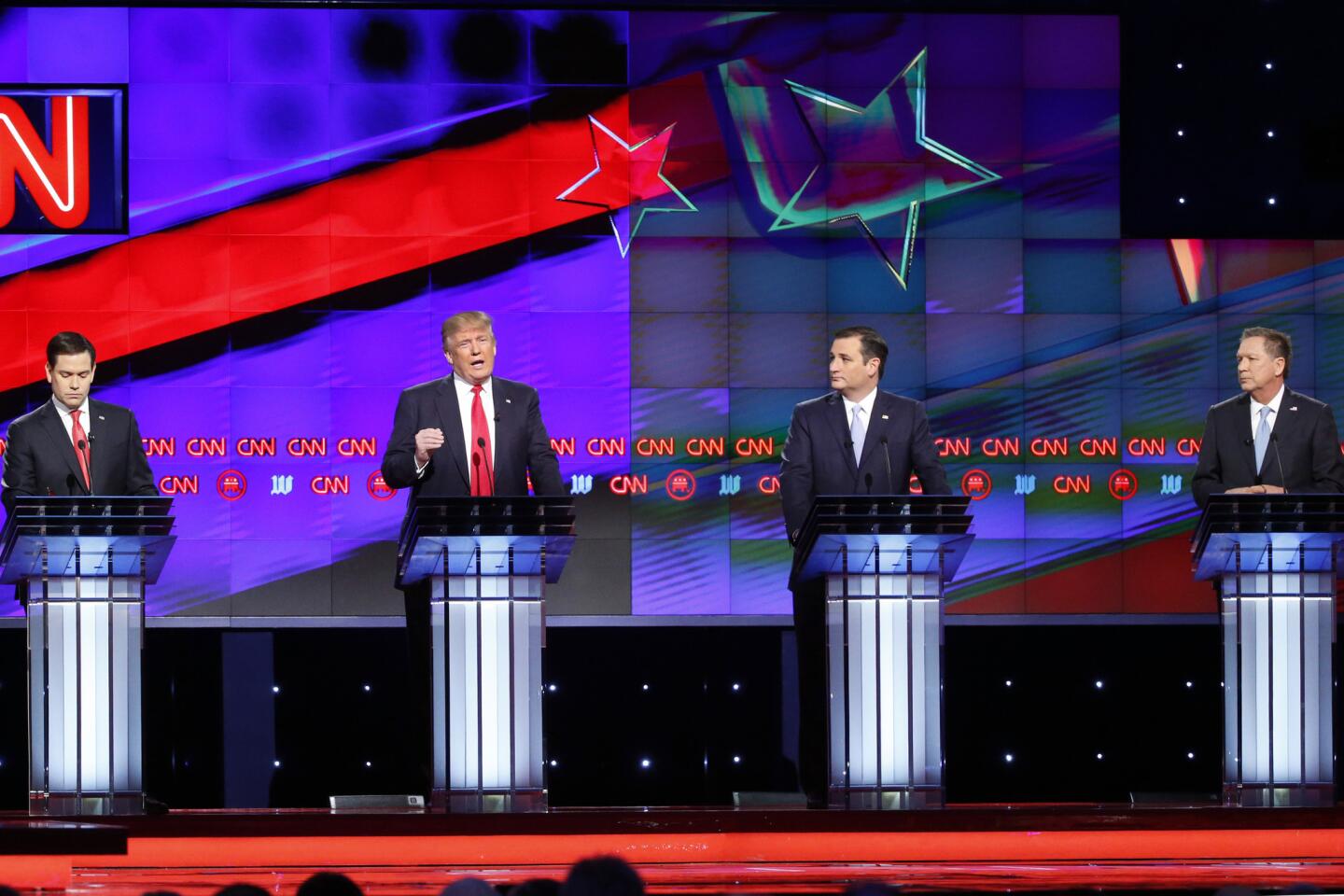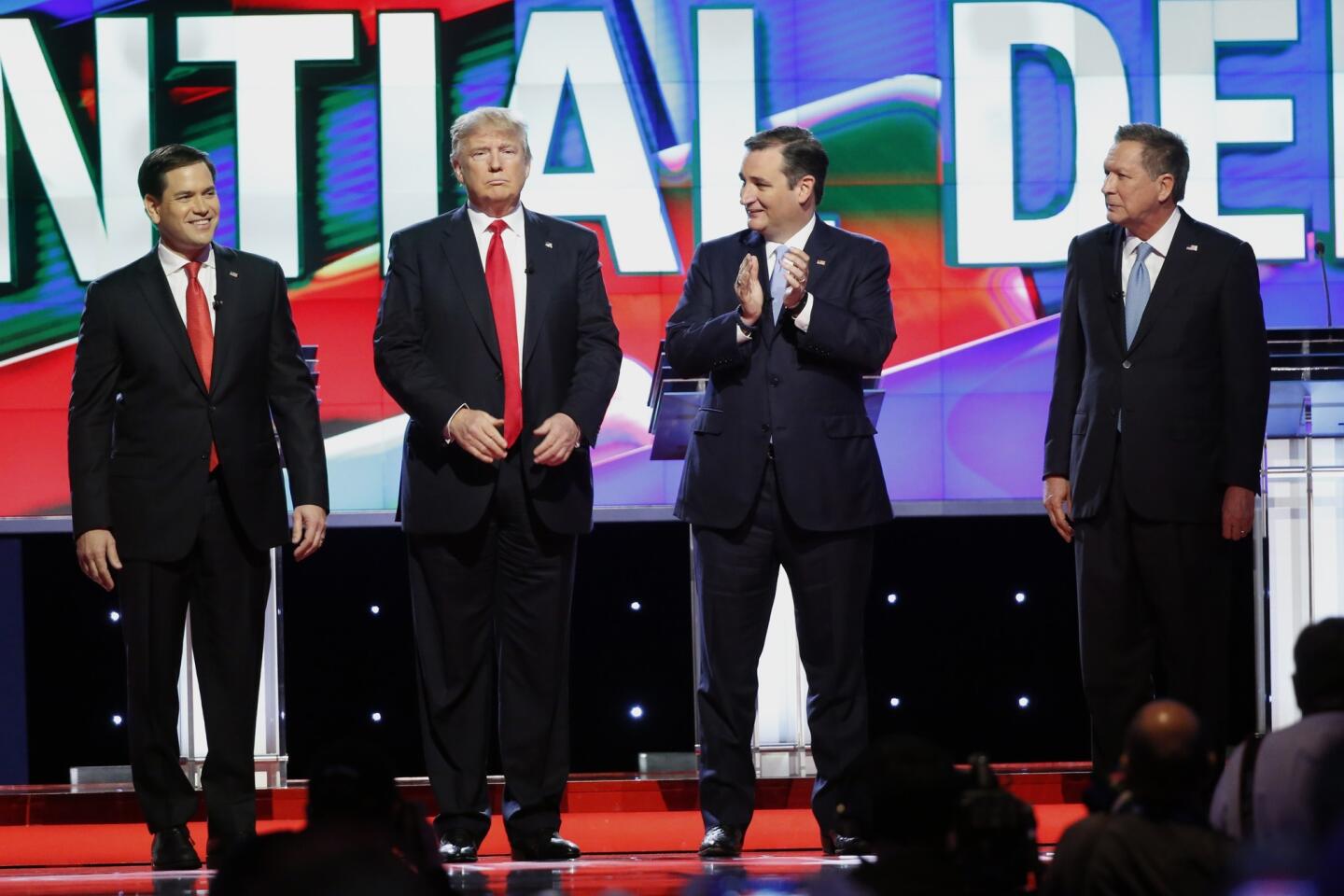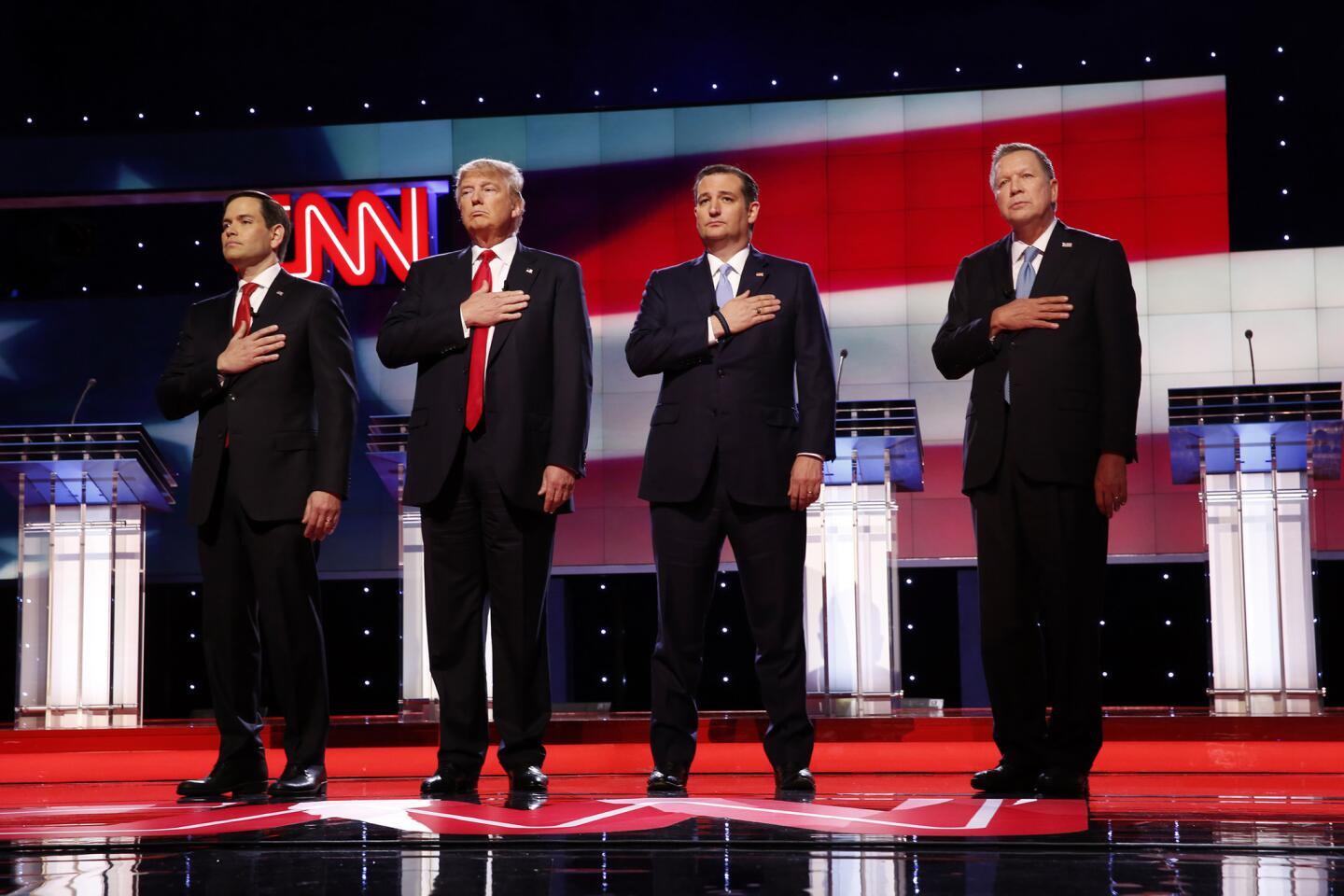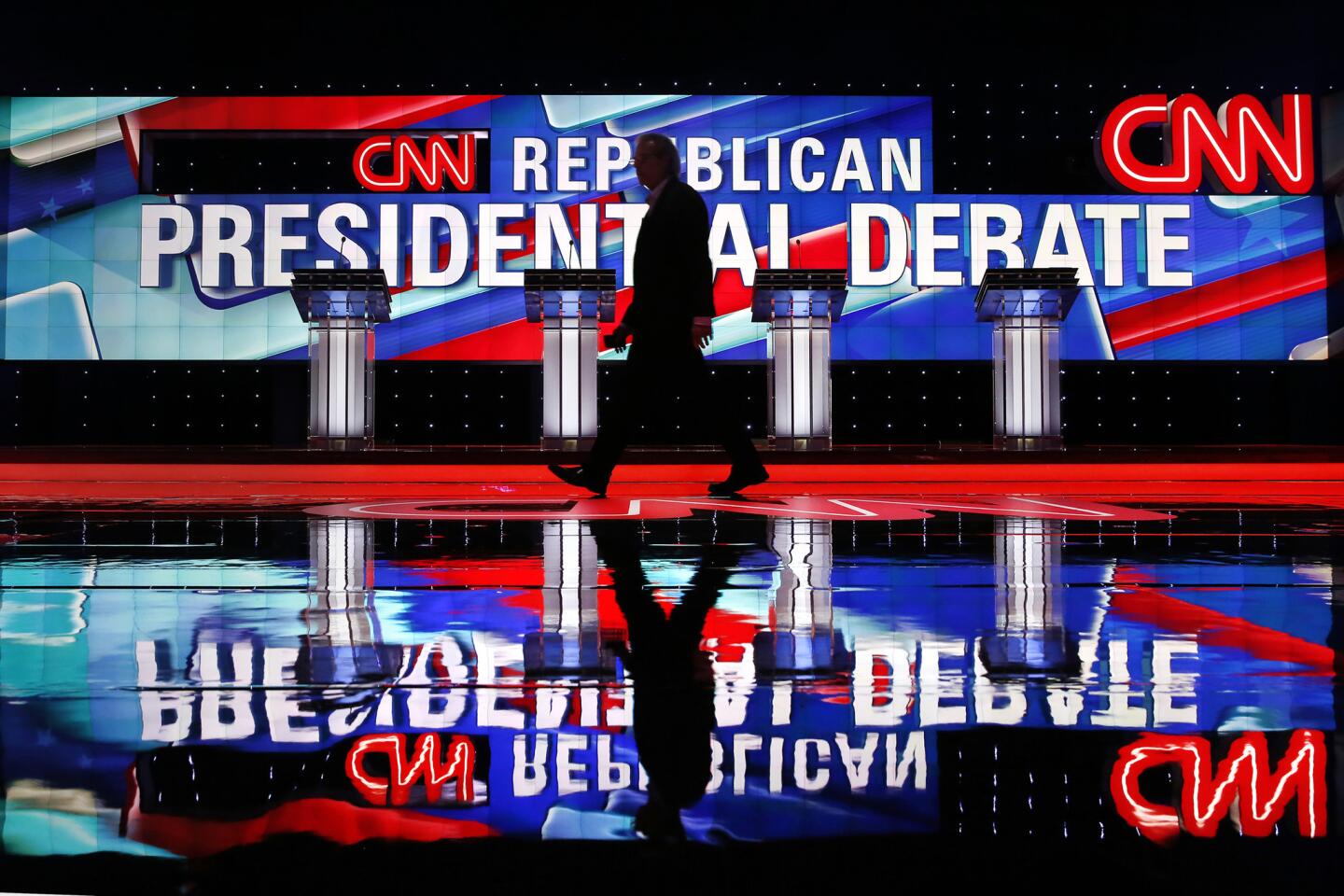CNN’s practice for the GOP debate was a lot more contentious than the real thing
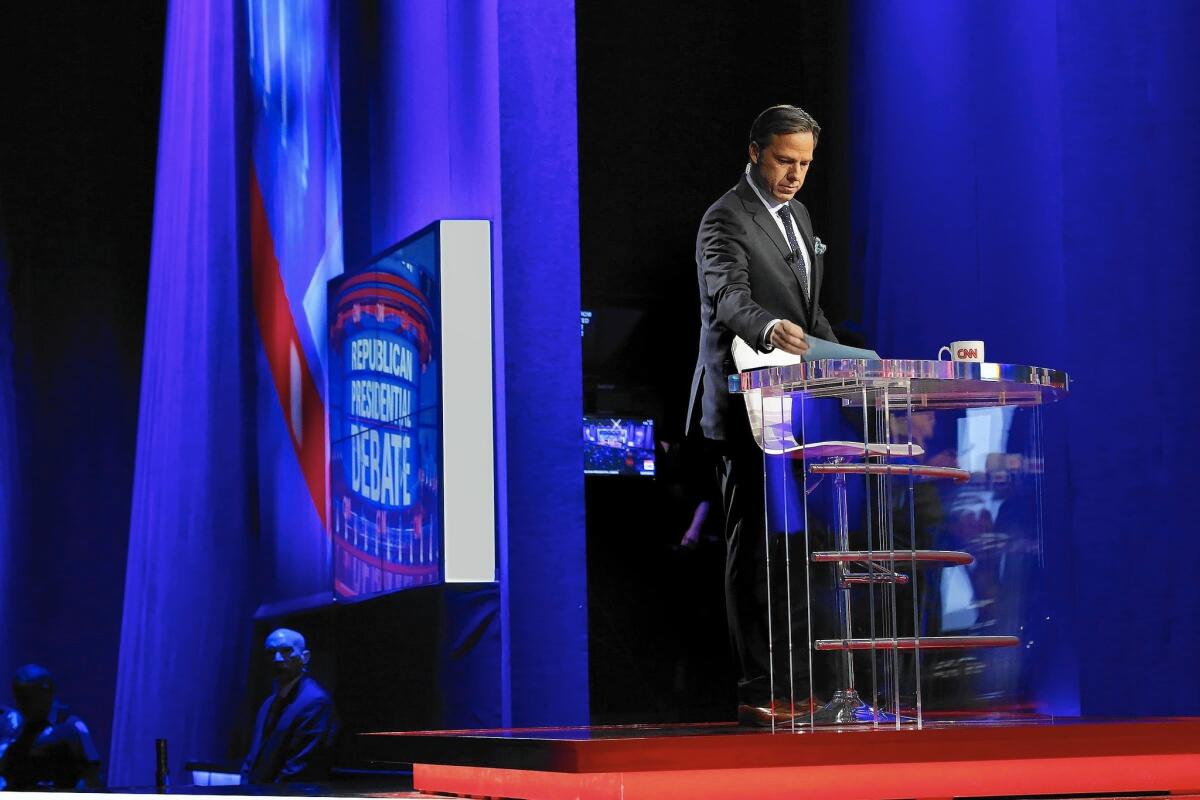
- Share via
Reporting from MIAMI — In the political debate business, you hope for the best and prepare for the worst.
On a beautiful sunshine-filled Florida day before the 12th Republican presidential primary debate on Thursday night, CNN’s political team, producers, executives and correspondents were hunkered down in a conference room at the Biltmore Hotel, a posh Mediterranean-style resort in Coral Gables.
Standing at the front of the room were four members of the cable news channel’s political team from Washington. Each of them had a photocopied picture of a Republican candidate — Sen. Marco Rubio, Donald Trump, Sen. Ted Cruz and Gov. John Kasich — attached to their shirts with metal binder clips.
See more of Entertainment’s top stories on Facebook >>
The photocopied sheets allowed CNN debate moderator Jake Tapper to look right at the stand-in candidates and pose the questions he would use on stage at the BankUnited Center at the University of Miami, the candidates’ last joint appearance before two critical primaries next Tuesday.
The mock debate was what longtime CNN Washington bureau chief Sam Feist calls the “secret sauce” of his operation, which The Times was allowed to observe on the condition that the actual exchanges in the session not be quoted.
The Thursday night event that was watched by 11.8 million viewers was not nearly as contentious as the re-creation that CNN staged, with the candidates avoiding the zingers that have made their previous meetings must-watch affairs.
CNN’s mock debate performances are dialed up a few notches above what executives expect to happen on stage, just in case. After the raucous and rancorous showdown the candidates had in Detroit on March 3, the network had to be prepared for anything.
During the run-through, a staffer who watched the clock called out “ding-ding” when a candidate’s speaking time was up. The answers given were based on the real candidates’ previous statements, as each political team member had researched them thoroughly enough to articulate their positions, which were often an uncanny resemblance to what played out at the real event.
The new CNN model is when there is a big story -- Ferguson, the terrorist attacks in Paris, the election -- we go all in.
— CNN President Jeff Zucker
“These are people that have covered politics for decades, know it, are fascinated by it, know the history, know what stories have been stories in previous elections,” Feist said. “We’ve been doing debate prep as a group for a long time.”
The faux candidates also mixed in interruptions, spirited personal attacks and attempts to intimidate Tapper and his co-debate questioners, political correspondent Dana Bash, radio host Hugh Hewitt and Washington Times reporter Stephen Dinan.
“We can’t control when candidates attack each other, but we can at least anticipate when it might happen,” Feist noted.
Eric Sherling, the vice president who oversees CNN’s Washington programming, sat between Tapper and Bash, offering direction and follow-ups, just as he did on Thursday night by talking into their earpieces from a control room in a truck outside of the hall.
At the end of the practice session, which played out as a condensed replication of the entire event, CNN President Jeff Zucker weighed in. Drawing on his 30 years of live TV experience going back to his time as a wunderkind producer of NBC’s “Today,” he advised Tapper and the others on adjustments they needed to make.
A known talent whisperer, the deeply involved executive delivered his criticisms gently with a healthy serving of empathy. “My biggest note to you guys would be — conversational, not like you’re arguing with them,” he said. “Nobody should feel like you’re doing anything wrong. If Eric just says ‘tone’ to you, watch your tone. What you guys are doing is the hardest thing there is — this is really hard.”
When the session ended, all of the copied pages with the practice questions were collected and shredded so that they didn’t fall into the hands of the campaign teams. The CNN crew went through the entire exercise for a third time on Thursday just hours before the actual event.
These sessions help refine the questions, which after a dozen debates need to draw out more than just programmed responses and well-covered territory.
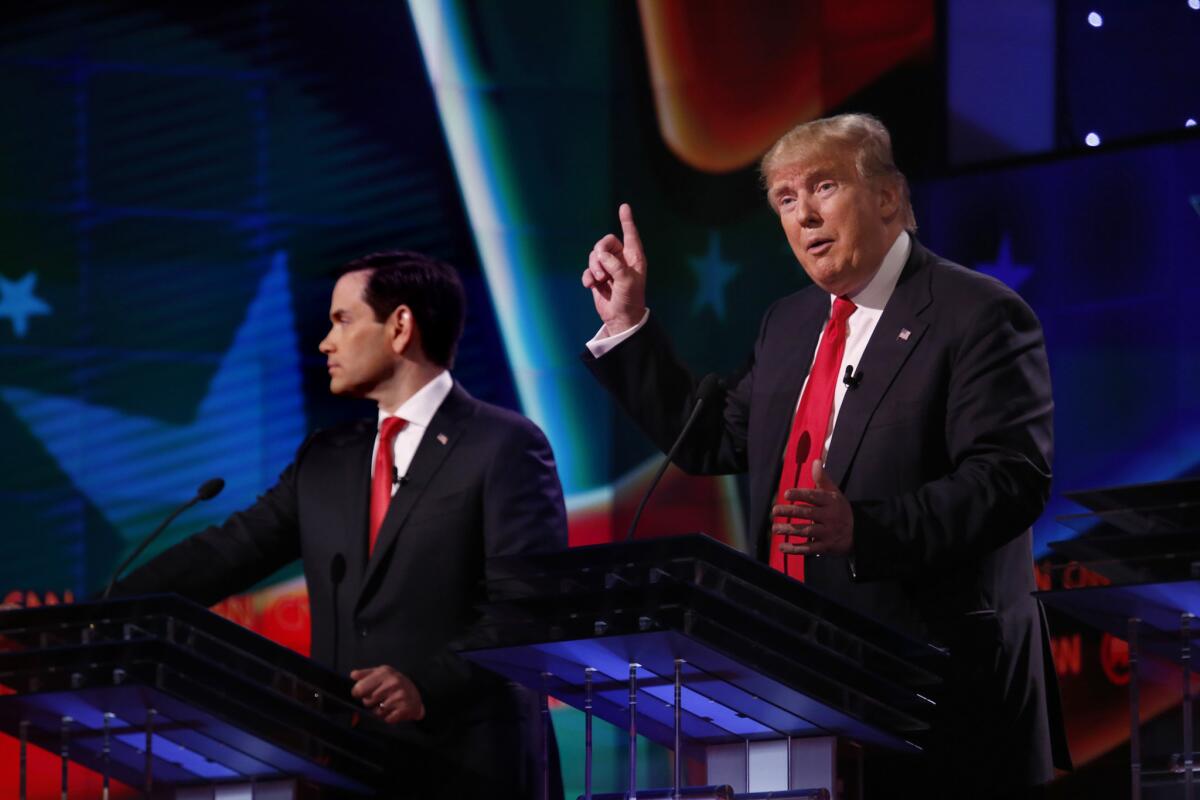
Sen. Marco Rubio, left, and Donald Trump take part in the debate at the University of Miami.
“You see which questions work and which ones don’t work,” said Tapper, a veteran Washington reporter who anchors CNN’s “The Lead” and its Sunday roundtable program “State of the Union.” “It allows you to game out possible differences and where the debate might go.”
The labor-intensive approach for CNN has paid off from a ratings perspective, as the debates have become the TV news equivalent of awards shows and NFL playoff games, delivering massive audiences that outperform most prime-time entertainment shows.
“There are better television series than there have ever been, but you can watch them at any time,” Zucker said. “What works are live events. Advertisers want to be a part of them. Viewers are flocking to them.”
Zucker has even bought debates from other networks — simulcasting Democratic showdowns produced by PBS and Univision. It gave CNN programming that delivered higher-than-usual ratings that cost well under $100,000 an hour.
CNN executives point out that they are the only cable network to have events sponsored by both parties because it keeps its anchors and hosts clear of political partisanship.
The Democratic National Committee has not jumped at invitations to have a debate on Fox News Channel, where a number of its hosts and panelists are highly critical of front runner Hillary Clinton (although Clinton and Sen. Bernie Sanders recently did their first town hall meeting with FNC’s “Special Report” anchor Bret Baier).
The Republicans have avoided MSNBC, even though the NBC News-operated channel has tried to move away from the politically progressive-leaning coverage of recent years.
Both parties have been willing to deal with CNN. There has been a heavy personnel investment in coverage — according to Feist, 50 people were added to cover politics starting in 2014 well before anyone could even imagine the high level of interest in the presidential race. Zucker, who took criticism for his network’s saturation coverage of the missing Malaysian airliner two years ago, said he’s using the same playbook for the already historic 2016 campaign.
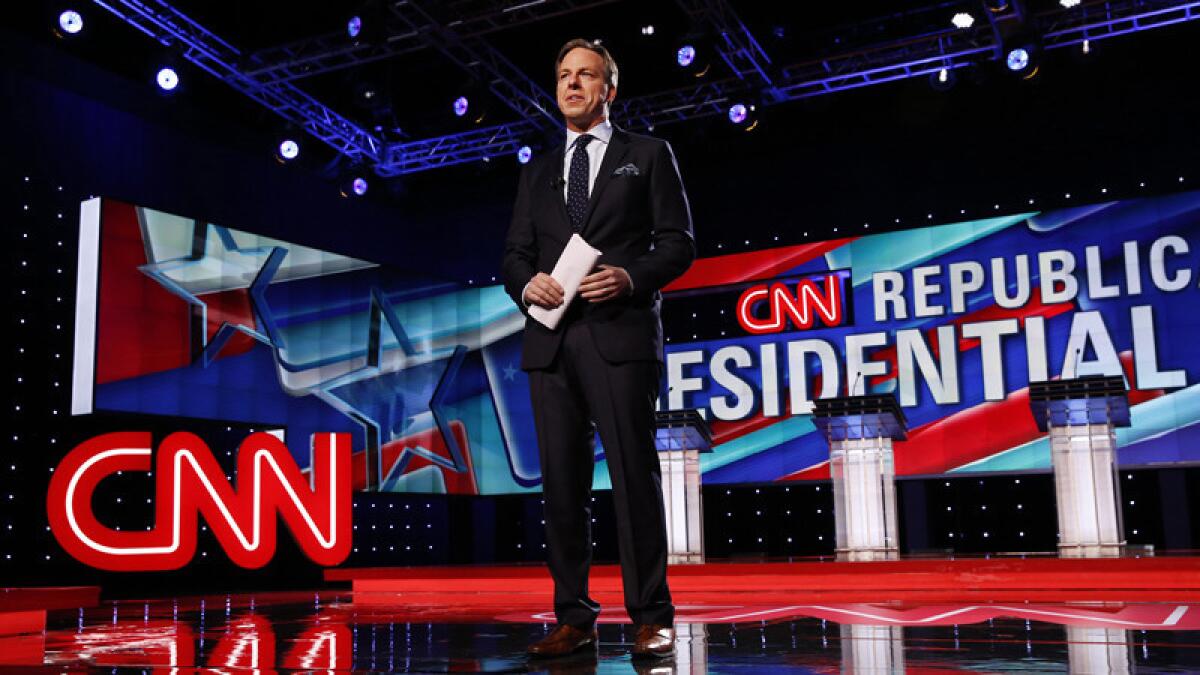
Jake Tapper moderates the Republican primary debate hosted by CNN, the University of Florida and the Washington Times.
“The new CNN model is when there is a big story — Ferguson, the terrorist attacks in Paris, the election — we go all in,” he said.
Zucker believes the results are showing up in the ratings for primary results coverage. While Fox News Channel still pulls in the most viewers overall on primary nights — this year hitting record highs — CNN has ranked first in the 25-to-54 age group that advertisers seek to reach with news programming on all but two of them.
While Thursday’s debate was the second most watched show of the night, it didn’t reach the blockbuster levels that some of the previous events have attained, perhaps because of the level of civility on the Miami stage.
Tapper, who earned kudos for guiding the candidates into a more policy-oriented discussion that was free of name-calling, was taken by surprise that they passed on opportunities to be more aggressive. But after they wrapped up, he was thanked by each contender for bringing more substance to the proceedings.
“That was nice,” he said. “I hoped people liked it. I know the attacks are probably more fun to watch.”
Twitter: @SteveBattaglio
The complete guide to home viewing
Get Screen Gab for everything about the TV shows and streaming movies everyone’s talking about.
You may occasionally receive promotional content from the Los Angeles Times.
